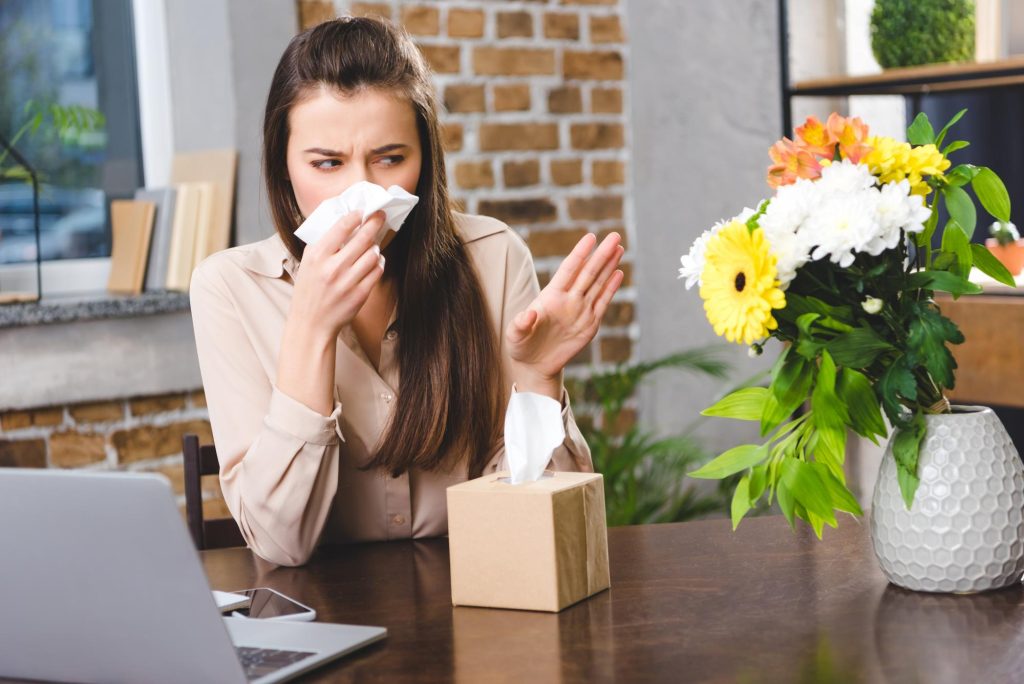Allergies affect millions of people worldwide, with symptoms ranging from sneezing and congestion to itchy eyes and difficulty breathing. In today’s world where indoor air quality plays a crucial role in health, air purifiers have become one of the most sought-after solutions for allergy relief. But do they really make a difference, or are they just another gadget with clever marketing? At First Point MD, we believe in diving into science-backed facts and practical advice so that you can make the best decisions for your health.
Understanding Allergies and Air Quality
Allergies occur when the immune system overreacts to harmless substances like pollen, dust mites, pet dander, or mold. For many, indoor allergens are the biggest culprits. Because we spend nearly 90% of our lives indoors, improving indoor air quality becomes essential.
Common triggers inside homes and workplaces include:
-
Dust mites in bedding, furniture, and carpets
-
Pet dander that lingers in the air and clings to surfaces
-
Mold spores from damp areas like bathrooms and basements
-
Pollen particles that drift inside during allergy season
-
Smoke and VOCs from household products and cooking
An air purifier aims to trap and remove these microscopic particles, helping reduce exposure and, in turn, minimizing allergic reactions.
How Do Air Purifiers Work?
Air purifiers operate using different technologies to filter or neutralize airborne particles:
-
HEPA Filters (High-Efficiency Particulate Air): Capture 99.97% of particles as small as 0.3 microns, including pollen, dust, and pet dander.
-
Activated Carbon Filters: Effective in removing odors, smoke, and volatile organic compounds (VOCs).
-
UV-C Light: Destroys bacteria, viruses, and mold spores, preventing them from reproducing.
-
Ionizers: Release charged ions that attach to allergens, causing them to settle out of the air.
The effectiveness of an air purifier depends heavily on the type of filter, room size compatibility, and maintenance practices like replacing filters regularly.
Air Purifiers and Allergy Relief: What Science Says
Scientific studies show that air purifiers with HEPA filters can significantly reduce indoor allergens and improve symptoms in allergy sufferers. For example:
-
Dust and Dander: HEPA filters can reduce airborne dust mites and pet dander by up to 80%.
-
Pollen: Continuous use in peak allergy seasons lowers pollen counts indoors.
-
Asthma Symptoms: Many patients report improved breathing and reduced nighttime coughing when using purifiers.
However, while air purifiers can reduce airborne allergens, they cannot eliminate allergens embedded in furniture, carpets, or bedding. For best results, they should be combined with regular cleaning routines and other environmental control strategies.
Benefits of Air Purifiers for Allergy Sufferers
-
Cleaner Air to Breathe – Reduces the number of triggers that float in the environment.
-
Better Sleep – Many allergy symptoms worsen at night; filtered air supports restful sleep.
-
Odor Removal – Activated carbon helps remove smoke, pet odors, and chemical smells.
-
Prevention of Mold Growth – Reduces mold spores that can worsen allergies and asthma.
-
Long-Term Health Benefits – Continuous reduction of pollutants can support respiratory and immune system health.
Limitations of Air Purifiers
While beneficial, air purifiers are not a cure-all. Understanding their limitations is crucial:
-
They cannot remove allergens stuck on soft surfaces like bedding, curtains, and carpets.
-
Filters must be replaced frequently to maintain efficiency.
-
They are room-specific – one purifier cannot effectively cover an entire house unless it’s a whole-home system.
-
Ionizers may release ozone, which can irritate lungs if not carefully designed.
For optimal results, combine air purifiers with:
-
Frequent vacuuming using HEPA-equipped vacuums
-
Washing bedding in hot water weekly
-
Controlling humidity to prevent mold growth
-
Limiting exposure to pets in sleeping areas
Air Purifiers vs. Other Allergy Management Solutions
Air purifiers should be viewed as part of a holistic allergy management strategy, not the sole solution. Here’s how they compare to other methods:
-
Medication (Antihistamines & Nasal Sprays): Provides immediate symptom relief but doesn’t address the allergen itself.
-
Allergy-Proof Bedding: Directly prevents dust mites from triggering night-time symptoms.
-
Dehumidifiers: Prevent mold and mildew growth by reducing indoor humidity.
-
Lifestyle Adjustments: Limiting outdoor exposure during peak pollen times and regular cleaning can work hand-in-hand with purification systems.
The best results come from combining methods, where air purifiers act as a reliable first line of defense.
Choosing the Right Air Purifier for Allergies
When selecting an air purifier, consider the following factors:
-
Filter Type – Always choose a True HEPA filter, not just “HEPA-like.”
-
Room Coverage – Match the purifier’s CADR (Clean Air Delivery Rate) to your room size.
-
Noise Levels – For bedrooms, choose a unit with quiet operation.
-
Maintenance Costs – Factor in replacement filters and energy usage.
-
Additional Features – Some models include smart sensors, auto-adjusting fan speeds, and air quality monitors.
Brands like Dyson, Honeywell, Levoit, and Blueair are often recommended for allergy relief.
Do Air Purifiers Really Make a Difference?
The short answer: Yes, but with conditions.
-
Air purifiers can dramatically reduce allergens in the air, leading to noticeable improvements in allergy symptoms.
-
However, their effectiveness depends on consistent use, proper placement, and maintenance.
-
They should be used alongside other allergy-reducing strategies for maximum relief.
For individuals struggling with seasonal allergies, asthma, or indoor sensitivities, investing in a quality air purifier can be a life-changing step toward cleaner, healthier air.
Final Thoughts
At First Point MD, we understand how frustrating allergies can be. While air purifiers are not a cure, they are a powerful tool to reduce exposure, improve breathing, and enhance overall quality of life. With the right purifier and a holistic allergy management approach, you can reclaim comfort in your home and enjoy fresher, cleaner air every day.


